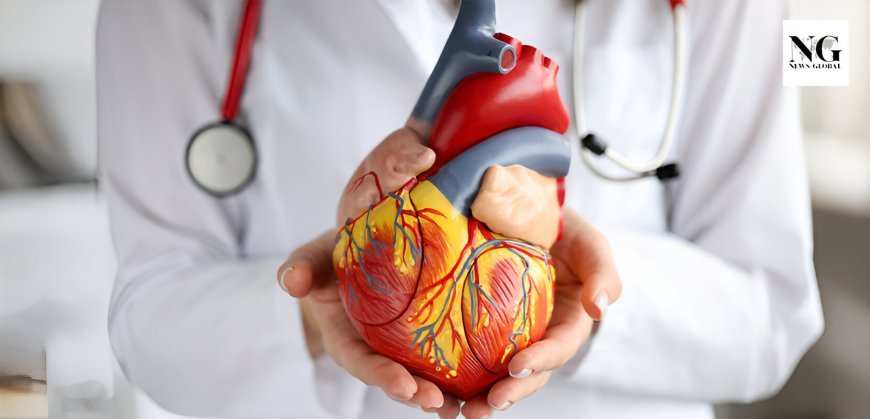Heart Health Alert: 5 Symptoms It’s Time to See a Cardiologist
Is your heart trying to tell you something? Discover 5 warning signs that could save your life before it’s too late.

Your heart works without rest. It beats from the moment you are born, keeping every part of your body alive. But even the strongest heart can struggle at times. When it does, it sends out warning signs, small steady messages that something isn’t right. Many people ignore these signals, thinking they’ll pass. That’s where the danger begins.
Prevention starts with awareness. Chest pressure is a signal. Breathlessness is a signal. Dizziness is a signal. Leg swelling is a signal. Each warrants a focused check. Early care reduces hospital stays. These five signs need action. Arrange a cardiology review promptly.
Chest pain or pressure
Chest pain is the most serious sign. It can feel like pressure or tightness. It may feel like a heavy weight. It can burn or ache. The feeling can spread to the arm or jaw. It can move to the back or neck. Pain that worsens with effort matters. Pain that eases with rest matters too. That pattern suggests angina. Angina means poor blood flow to the heart. It can lead to a heart attack. New pain is an emergency. Severe pain is an emergency. Do not wait it out. Call for help now. Get an ECG and enzymes test. Ask about coronary risk and next steps.
Shortness of breath
Breathlessness is a red flag. It can appear with light effort. It can appear at rest. The heart may be weak. The valves may be leaking or tight. Fluid can back up into the lungs. You may struggle to lie flat. You may wake up gasping at night. These are signs of heart failure. Do not delay assessment. Ask for an echocardiogram. Check BNP or NT‑proBNP. Review medications and salt intake. Track daily weights. Rapid weight gain signals fluid buildup. Early care prevents admissions.
Irregular or racing heartbeat
Palpitations feel like flutters or pounding. Beats may feel skipped. The heart may race without trigger. Episodes that last matter. Episodes with chest pain matter. Episodes with fainting are urgent. These could be arrhythmias. Atrial fibrillation is common. It raises stroke risk. Ventricular rhythms can be dangerous. Seek rhythm monitoring. Ask for ECG and Holter. Consider a patch monitor. Check thyroid levels. Review caffeine and alcohol. Discuss stroke prevention if AF is found. Rate and rhythm control both help. Individual plans work best.
Dizziness or fainting

Dizziness can be a warning. Fainting is an urgent sign. Blood flow to the brain may be low. The heart may be too slow. The heart may be too fast. Blood pressure may crash on standing. Structural disease can be present. Report the first event. Describe the timing and triggers. Note any chest pain or palpitations. Note any injury from the fall. Ask for orthostatic vitals. Request ECG and echocardiogram. Rhythm monitoring may be needed. Pacemakers can help slow rhythms. Ablation can help fast rhythms. Do not drive until cleared.
Swelling in legs, ankles, or feet
Persistent swelling is not cosmetic. It signals fluid retention. The heart may not pump well. Kidneys may struggle from low flow. Socks may leave deep marks. Shoes may feel tight by evening. Weight may climb without reason. The abdomen can feel bloated. Breathlessness often coexists. Check salt intake and fluids. Track morning weights daily. Call if weight jumps quickly. Ask for renal and liver tests. Ask for an echocardiogram. Diuretics can relieve fluid. The cause still needs treatment.
Call for Help Without Delay
Chest pain with sweating needs a call. Chest pain with nausea needs a call. Pain that spreads need a call. Breathlessness at rest needs a call. Fainting with palpitations needs a call. New weakness on one side needs a call. Sudden trouble speaking needs a call. Do not drive yourself. Use emergency care at once.
What a cardiologist will do
The visit starts with a history. The exam focuses on heart and lungs. An ECG checks rhythm and damage. Blood tests check enzymes and strain. An echo checks structure and function. Stress tests assess blood flow. Monitors track intermittent rhythms. Imaging may look at arteries. The plan targets the cause. It may include medications. It may include procedures. Lifestyle changes support the plan. Follow-up keeps you safe.
How to lower risk now
Know your numbers. Check blood pressure at home. Keep systolic under your target. Control diabetes with a plan. Keep LDL within goal. Do not smoke. Limit alcohol. Move most days. Aim for brisk walking. Sleep seven to nine hours. Treat sleep apnea. Reduce salt if advised. Take medicines as prescribed. Keep vaccines current. Track symptoms in a log. Share changes quickly.
Conclusion
Your heart speaks in clear signs. Chest pain demands action. Breathlessness needs answers. Palpitations need evaluation. Dizziness needs urgent review. Swelling needs prompt care. Early steps prevent emergencies. Book an appointment today. If in doubt, call for urgent help now.
FAQs
How can I tell if my chest pain is heart-related?
Chest pain linked to the heart often feels like pressure, heaviness, or tightness in the center of the chest. It may spread to your arm, jaw, or back. Pain that comes with sweating, nausea, or breathlessness needs emergency attention.
Why do I feel short of breath with little effort?
Shortness of breath can mean your heart isn’t pumping blood properly. Fluid might be building up in your lungs, making it hard to breathe. If you struggle for breath while resting or lying down, see a cardiologist soon.
What do frequent palpitations mean?
Palpitations feel like fluttering or skipping beats in your chest. Occasional episodes may be harmless, but frequent ones can point to an irregular rhythm. A cardiologist can check your heartbeat and find out if it’s a sign of heart disease.
Can dizziness or fainting be caused by heart problems?
Yes. Fainting or lightheadedness can happen when your heart fails to pump enough blood to your brain. It may be due to a rhythm issue or weak heart muscle. Get it checked if it happens suddenly or often.
What causes swelling in my legs or ankles?
Swelling in your lower body may mean your heart is not circulating blood efficiently. Fluid collects in your legs and feet, especially by evening. Persistent swelling needs medical evaluation to rule out heart failure.

 Admin
Admin